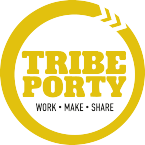Our Collective Wellness
I recently spoke about the book, When the Body Says No, by Gabor Mate on the monthly book review club, 5 Things. I highly recommend 5 Things (@andyirvine on Twitter) – here is April’s video recording to check out. There were two other books and speakers, Me and White Supremacy: How to Recognise Your Privilege, Combat Racism and Change the World by Layla Saad and Humble Inquiry: The Gentle Art of Asking Instead of Telling by Edgar H. Schein and Peter A. Schein.
From my own personal health traumas, to the pandemic, all the way to the climate crisis, there is a lot to feel right now. Life is hard, right? How many of us are teetering on the edge of burnout or lack energy?
Slow Down! No. really. slow. it. right. down.
Many of us have been conditioned to believe that the path to success is paved with relentless work. Achieving isn’t good enough, we are striving to overachieve. But lately, working hard is more exhausting than ever. And the more depleted we get, the more effort it takes to make progress. As Greg McKeown rights in his new book, Effortless: Make It Easier to Do What Matters Most,
“There is an ebb and flow to life. Rhythms are in everything we do. There are times to push hard and times to rest and recuperate. But these days, many of us are pushing harder and harder all the time. There is no cadence, only grinding effort. What could happen in your life if the easy but pointless things became harder and the essential things became easier?”
McKeown describes the effortless state you feel after a warm meal, a hot shower, a walk in the forest. The effortless state is one where you are physically rested, emotionally unburdened, and mentally energised. You are able to do what matters most with ease.
This is so simple, but I think you should read it again. The effortless state is one where you are physically rested, emotionally unburdened, and mentally energised. You are able to do what matters most with ease.
The pandemic has impacted the economy, livelihood, and physical and mental wellbeing of people worldwide.
Traumas are felt in our bodies and what is a trauma? A loss of safety; a lack of predictability; a sense of immobility, of being stuck; a loss of connection; a loss of our sense of time and sequence; a loss of meaning, purpose. Stress hormones really do create more energy, and that energy is either propelling us to fight or flight. Collectively we are all feeling the trauma in some way.
Collectively we can also heal. We are all connected and when you focus on what you have, you gain what you lack.
Since the first lockdown, I personally have enjoyed watching sea swimmers shrieking in the North Sea, copious social media pictures of wonky sourdough loafs and hundreds of posts of sunsets and sunrises. These small acts are effortless because they give back more than they require. They have helped people slow down, notice what they have and feel a bit better. Don’t get me wrong, being physically rested takes effort and awareness of behaviours. Being emotionally unburdened is also no small feat but if you never begin, you’ll never go anywhere. And being mentally energised is bliss and worth all of the effort required.
So what’s my takeaway? Life doesn’t have to be as hard or complicated as I make it and there is no prize for burnout. Focusing on finding the effortless state to do what matters most, feels like a good place to start.
Please get in touch with any thoughts, comments or stories.

